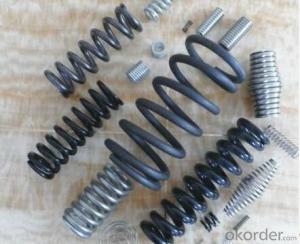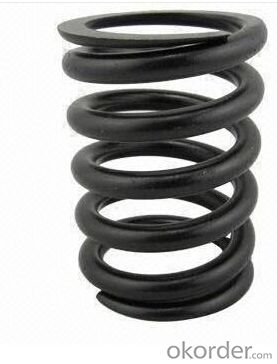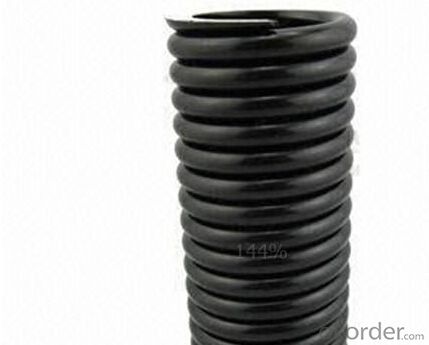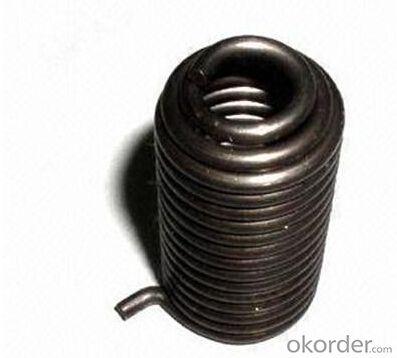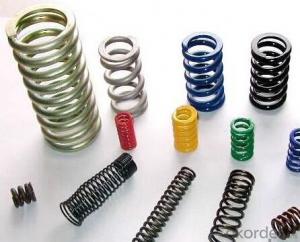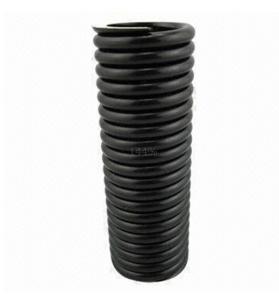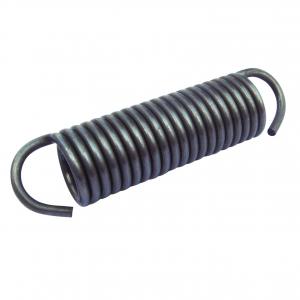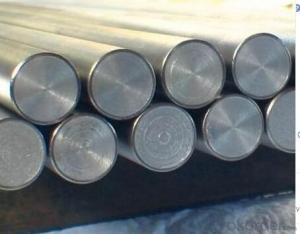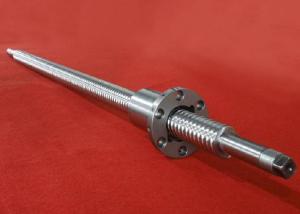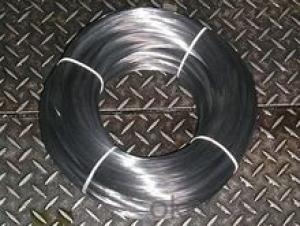Precision High Heavy Compression Spring
- Loading Port:
- China Main Port
- Payment Terms:
- TT or LC
- Min Order Qty:
- -
- Supply Capability:
- -
OKorder Service Pledge
OKorder Financial Service
You Might Also Like
Product Description:
OKorder is offering Precision High Heavy Compression Spring at great prices with worldwide shipping. Our supplier is a world-class manufacturer of steel, with our products utilized the world over. OKorder annually supplies products to European, North American and Asian markets. We provide quotations within 24 hours of receiving an inquiry and guarantee competitive prices.
Product Applications:
Precision High Heavy Compression Spring are ideal for structural applications and are widely used in the construction of buildings and bridges, and the manufacturing, petrochemical, and transportation industries.
Product Advantages:
OKorder's Precision High Heavy Compression Spring are durable, strong, and resist corrosion.
Main Product Features:
· Premium quality
· Prompt delivery & seaworthy packing (30 days after receiving deposit)
· Corrosion resistance
· Can be recycled and reused
· Mill test certification
· Professional Service
· Competitive pricing
Specifications of Precision high heavy Compression Spring:
ISO9001 certificate
Wire diameter: 0.15mm to 7.0mm
Material: stainless steel, swc,swp
Engine valve spring
We have the CNC computer spring machine, non-cam and non-rocker, independent control by multiple servo motor, which can produce the biggest diameter spring. Fast production, precision positioning, steady operation. | |
Wire diameter: | 0.08mm-10mm. Size and style are made by drawings. |
Materials: | adopt the domestic and imported swc, sus, swp, mild steel wire, manganese steel wire, phosphorus copper wire, nickel-plated wire, zinc-plated wire, tin-plated copper wire, nickel-plated steel wire, non-magnetic stainless steel wire, heat-resistant steel wire, duplex stainless steel wire(corrosion resistant and heat resistant steel wire), bronze, copper, phosphorus copper, beryllium copper. Alloy steel has 60Si2MNA, 60Si2CRVA, 55CrSi. |
Surface treatment: | plate gold, silver, white, red yellow, blue, green, purple, black, etc., salt spray test more than 100 H. Appearance beautiful and bright. |
Application: | electronics, electrical appliances, toys, locks, stationery, furniture, washing machines, vacuum cleaners, lamps and lanterns, stroller, bicycle, gift, handicraft, gifts, cameras, printers, office equipment, precision equipment, all kinds of transportation, car accessories, sports equipment, switches, sockets, water heater, calculator, watches, ignition, mouse, motor, mobile phone, mementoes, fan, video DVD, etc |
Usage/Applications
We import the most sophisticated computer compression spring machine from Taiwan; it can do 100 percent inspection to spring length, which ensured the spring quality stable and precise
Widely used in automobiles, motorcycles, electrical appliances, telecommunication, communication, aviation, space and other civil fields
FAQ:
Q1: Why buy Materials & Equipment from OKorder.com?
A1: All products offered byOKorder.com are carefully selected from China's most reliable manufacturing enterprises. Through its ISO certifications, OKorder.com adheres to the highest standards and a commitment to supply chain safety and customer satisfaction.
Q2: How do we guarantee the quality of our products?
A2: We have established an advanced quality management system which conducts strict quality tests at every step, from raw materials to the final product. At the same time, we provide extensive follow-up service assurances as required.
Q3: How soon can we receive the product after purchase?
A3: Within three days of placing an order, we will begin production. The specific shipping date is dependent upon international and government factors, but is typically 7 to 10 workdays.
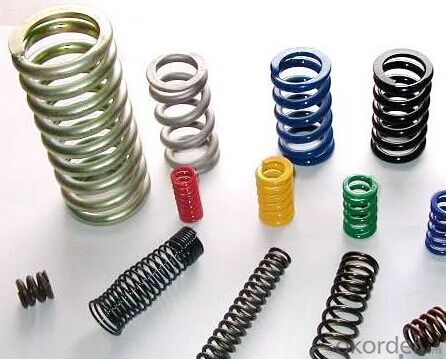
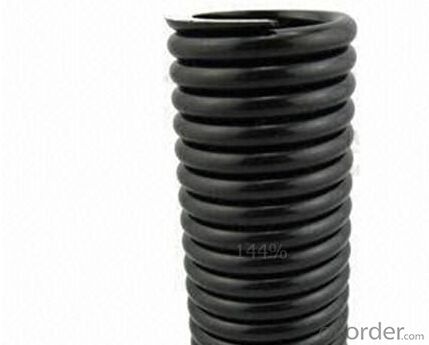
- Q: How does special steel contribute to the automotive emission reduction?
- Special steel contributes to automotive emission reduction in several ways. Firstly, it is used in the production of lightweight components, such as body panels and chassis parts. By replacing heavier materials with special steel, vehicles become lighter, resulting in improved fuel efficiency and reduced emissions. Additionally, special steel offers superior strength and durability, allowing for the design of more efficient and compact engines. This enables automakers to reduce engine size while maintaining performance, leading to reduced fuel consumption and lower emissions. Furthermore, special steel is used in the manufacturing of exhaust systems, catalytic converters, and other emission control devices. Its high heat resistance and corrosion resistance properties ensure the effective functioning of these components, thereby minimizing harmful pollutants released into the atmosphere. Overall, special steel plays a crucial role in automotive emission reduction by enabling lighter and more efficient vehicles, enhancing engine performance, and ensuring the effectiveness of emission control systems.
- Q: What are the main factors affecting the wear resistance of special steel?
- There are several main factors that affect the wear resistance of special steel. Firstly, the composition of the steel plays a crucial role. The addition of certain alloying elements, such as chromium, vanadium, and tungsten, can significantly enhance the wear resistance of the steel. These elements form hard carbides or nitrides within the steel matrix, which increase its hardness and resistance to wear. Secondly, the heat treatment process used on the steel greatly influences its wear resistance. Through processes like quenching and tempering, the steel can be hardened to achieve a desired level of wear resistance. The heat treatment also helps in refining the microstructure of the steel, making it more resistant to wear and deformation. Thirdly, the microstructure of the steel is another important factor. The presence of fine grains and a homogeneous distribution of carbides or other reinforcing phases within the steel matrix greatly enhances its wear resistance. Additionally, the presence of retained austenite, a metastable phase, can also contribute to improved wear resistance. Furthermore, the hardness of the steel is a key determinant of its wear resistance. A higher hardness level generally translates to better wear resistance, as it provides resistance against the abrasive forces acting on the steel surface. Lastly, the design and surface finish of components made from special steel also affect their wear resistance. The shape, size, and surface roughness of the components can influence the distribution and magnitude of the contact stresses on the steel, thereby affecting its wear resistance. In conclusion, the wear resistance of special steel is influenced by factors such as its composition, heat treatment, microstructure, hardness, and the design and surface finish of the components. By carefully considering these factors, engineers can optimize the wear resistance of special steel for various applications.
- Q: What are the common challenges in heat treating special steel?
- Heat treating special steel can present a variety of challenges. One common challenge is achieving the desired hardness and strength while maintaining the desired microstructure. Special steels often require specific heat treatment processes, such as quenching and tempering, to achieve the desired mechanical properties. However, the high alloy content of these steels can lead to difficulties in achieving uniform heat distribution and controlling the cooling rate during quenching, which in turn can result in inconsistent hardness and potential distortion. Another challenge in heat treating special steel is managing residual stresses. During the heating and cooling process, differential thermal expansion and contraction can cause stress to build up within the steel, leading to potential cracking or distortion. Special care must be taken to minimize these stresses through proper heat treatment techniques, such as preheating and controlled cooling rates. Special steels often have stringent cleanliness requirements, as impurities or non-metallic inclusions can negatively impact their mechanical properties. Ensuring the cleanliness of the steel prior to heat treatment can be challenging and may require additional steps such as degreasing, pickling, or using protective atmospheres during heat treatment. Furthermore, some special steels are highly sensitive to overheating, which can lead to grain growth and loss of desired properties. Precise temperature control and monitoring are crucial to prevent overheating and ensure consistent results. Lastly, special steels may have specific time-temperature transformation (TTT) and continuous cooling transformation (CCT) characteristics that need to be considered during heat treatment. Understanding and adhering to the appropriate heating and cooling cycles are essential for achieving the desired microstructure and properties. In summary, the common challenges in heat treating special steel include achieving the desired hardness and microstructure, managing residual stresses, ensuring cleanliness, preventing overheating, and adhering to specific time-temperature transformation characteristics. Overcoming these challenges requires expertise, precise control, and adherence to strict heat treatment protocols.
- Q: What are the requirements for special steel used in cryogenic applications?
- To ensure optimal performance and reliability in extremely low-temperature environments, special steel employed in cryogenic applications must fulfill a range of prerequisites. First and foremost, the steel must exhibit exceptional low-temperature toughness, enabling it to endure the extreme cold without succumbing to brittle fracture or compromising its mechanical properties. It is imperative that the steel possesses high toughness and ductility to effectively absorb impacts and prevent cracking. Moreover, the steel must possess a low coefficient of thermal expansion. This characteristic assumes significance as cryogenic applications involve substantial temperature fluctuations. A high coefficient of thermal expansion can result in dimensional instability and stress within the material. Conversely, a low coefficient of thermal expansion mitigates these effects and maintains dimensional stability. Furthermore, the steel should demonstrate low thermal conductivity. Given that cryogenic applications often entail the transfer or storage of substances at extremely low temperatures, minimizing heat transfer is essential. A low thermal conductivity aids in maintaining the desired temperature and prevents unwanted heat exchange. This aspect is particularly critical in applications where precise temperature control is paramount, such as the storage of liquefied gases. In addition, the steel must exhibit excellent corrosion resistance. Cryogenic environments can be highly corrosive, necessitating the steel's ability to withstand the detrimental effects of corrosive substances that may be present. This attribute is particularly vital in applications involving the storage or transportation of cryogenic liquids or gases. Finally, the steel should possess good weldability. Welding is often necessary to join different components or sections of the steel in cryogenic applications. Therefore, ensuring the steel's weldability is crucial to establish strong and reliable joints. In summary, the requirements for special steel used in cryogenic applications encompass exceptional low-temperature toughness, a low coefficient of thermal expansion, low thermal conductivity, excellent corrosion resistance, and good weldability. Satisfying these requirements guarantees the steel's ability to withstand the harsh conditions and extreme cold of cryogenic environments while preserving its structural integrity and performance.
- Q: What are the different non-destructive testing methods for special steel?
- Special steel materials can be evaluated using a variety of non-destructive testing methods. These methods are specifically designed to identify flaws or defects in the steel without causing any harm to the material itself. There are several commonly used non-destructive testing methods for special steel: 1. Ultrasonic Testing (UT): UT utilizes high-frequency sound waves to detect internal flaws or defects in the steel. By directing ultrasonic waves into the material and analyzing the reflected waves, any cracks, voids, or inclusions can be identified. 2. Magnetic Particle Testing (MT): MT is primarily used to identify surface defects in steel. By applying a magnetic field to the material and iron particles to the surface, any present defects will cause the particles to cluster around them, making them visible for inspection. 3. Liquid Penetrant Testing (PT): PT is a widely used method to detect surface defects in special steel. This technique involves applying a liquid dye to the steel surface and removing excess dye after a certain amount of time. By then applying a developer, any dye drawn out of defects becomes visible for inspection. 4. Radiographic Testing (RT): RT utilizes X-rays or gamma rays to examine the internal structure of special steel. The steel is exposed to radiation, and the resulting image is captured on a radiographic film or digital detector. This method is highly effective in detecting internal defects such as porosity, inclusions, or cracks. 5. Eddy Current Testing (ECT): ECT is primarily used for surface inspection of special steel. It involves passing an electrical current through a coil, generating a magnetic field. Any variations in the magnetic field caused by defects on the surface of the steel can be detected and analyzed. These non-destructive testing methods provide valuable information about the quality and integrity of special steel materials without causing any damage. By implementing these techniques, manufacturers and engineers can ensure that the steel meets required standards and specifications, ultimately enhancing safety and reliability in various applications.
- Q: What are the requirements for special steel used in aircraft manufacturing?
- The requirements for special steel used in aircraft manufacturing include high strength, excellent corrosion resistance, good weldability, and the ability to withstand extreme temperatures and stress conditions. Additionally, the steel must meet stringent quality control standards, possess good fatigue resistance, and be lightweight to maximize fuel efficiency.
- Q: How is special steel used in the production of cutting tools?
- Special steel is used in the production of cutting tools due to its exceptional strength, hardness, and durability. Its high carbon content and alloying elements enable it to withstand intense pressure, resist wear and abrasion, and maintain sharp edges for longer periods. This makes special steel ideal for manufacturing cutting tools such as saw blades, knives, drills, and chisels, ensuring precise and efficient cutting operations across various industries.
- Q: What are the applications of special steel in the manufacturing industry?
- Special steel has a wide range of applications in the manufacturing industry, including the production of tools, machinery, and equipment. It is commonly used in sectors such as automotive, aerospace, energy, and construction due to its exceptional strength, durability, and resistance to corrosion. Special steel is also utilized in the manufacturing of components that require high wear resistance, such as gears, bearings, and cutting tools. Its versatility and unique properties make it an essential material in various industrial applications.
- Q: What are the quality control measures for special steel?
- Quality control measures for special steel involve several key steps and processes to ensure that the final product meets the required standards and specifications. These measures typically include: 1. Raw Material Inspection: Thoroughly checking the quality and composition of the raw materials used in the production of special steel, such as ensuring the correct chemical composition and metallurgical properties. 2. Process Control: Implementing strict controls and monitoring throughout the manufacturing process to ensure consistent quality, such as maintaining precise temperature control during heating and cooling processes, controlling the rolling or forging parameters, and ensuring proper heat treatment. 3. Testing and Sampling: Conducting various tests and sampling techniques to assess the quality of the special steel, including mechanical tests (such as tensile strength, hardness), non-destructive testing (like ultrasonic or magnetic particle inspection), and chemical analysis. 4. Dimensional and Surface Inspection: Verifying that the dimensions and surface finish of the special steel conform to the required specifications, such as measuring length, diameter, straightness, and checking for any defects or irregularities. 5. Final Inspection and Certification: Performing a final inspection to ensure that the special steel meets all quality standards and customer requirements. This may involve visual examination, additional testing, and issuing necessary certifications or quality assurance documents. By implementing these quality control measures, manufacturers can ensure the reliability, durability, and consistent performance of special steel, making it suitable for various critical applications in industries like automotive, aerospace, energy, and construction.
- Q: What are the properties of high-temperature stainless steel?
- High-temperature stainless steel possesses excellent heat resistance, corrosion resistance, and mechanical strength even at elevated temperatures. It retains its structural integrity and is capable of withstanding extreme thermal conditions, making it suitable for various high-temperature applications such as in aerospace, power generation, and chemical industries.
Send your message to us
Precision High Heavy Compression Spring
- Loading Port:
- China Main Port
- Payment Terms:
- TT or LC
- Min Order Qty:
- -
- Supply Capability:
- -
OKorder Service Pledge
OKorder Financial Service
Similar products
Hot products
Hot Searches
Related keywords
